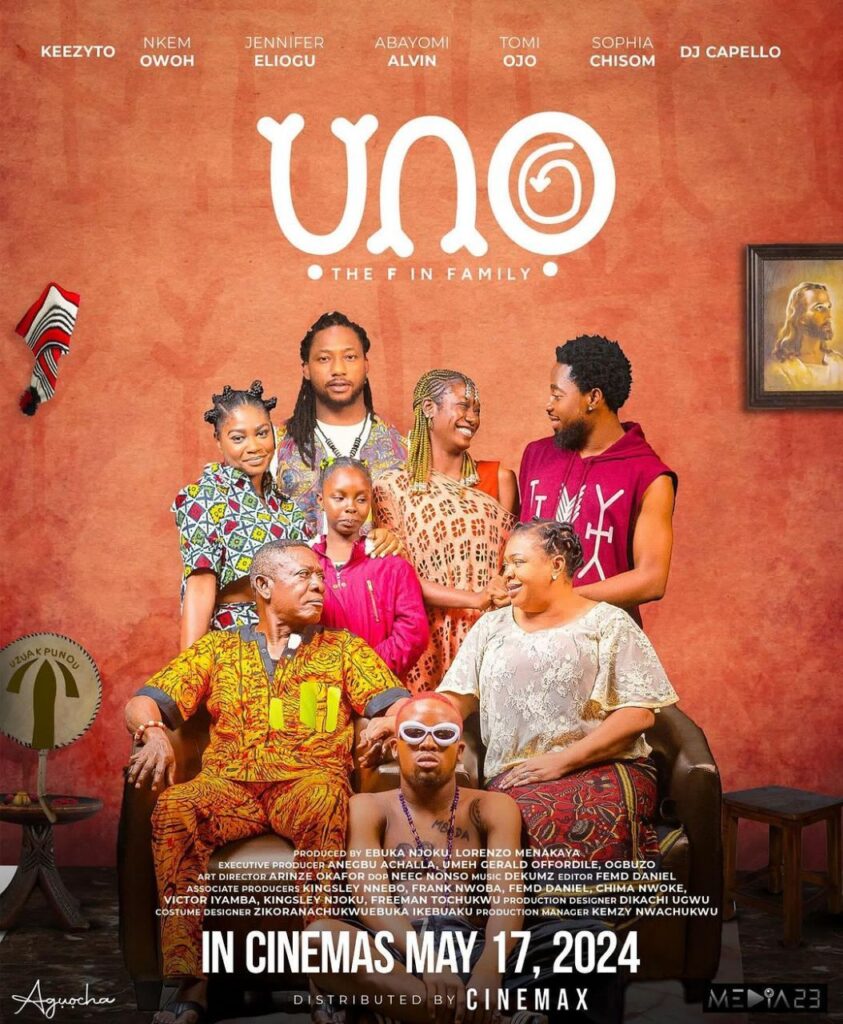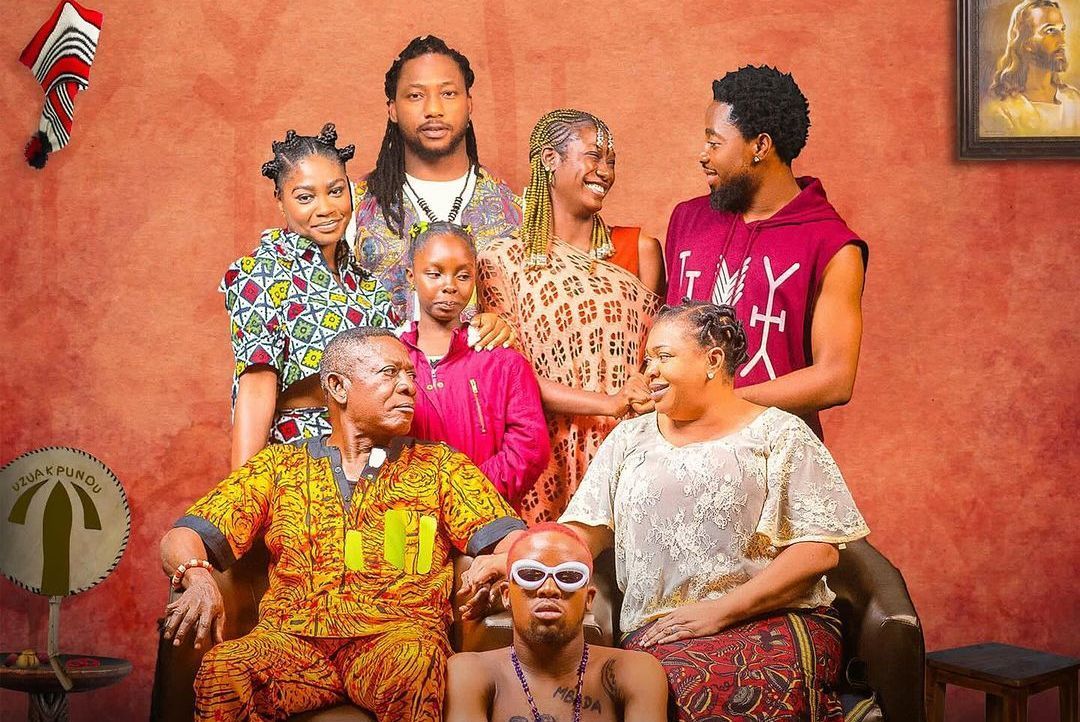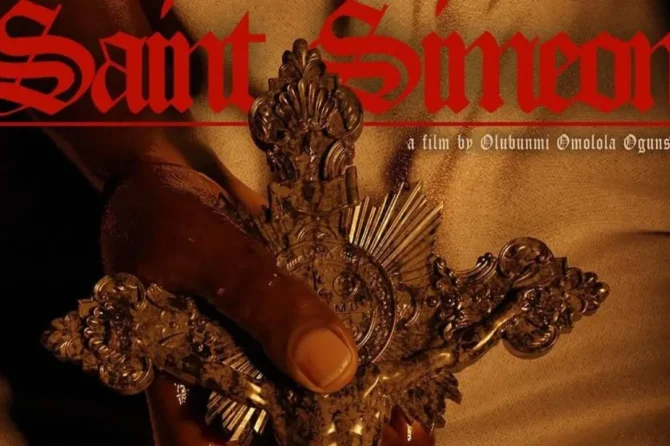Ebuka Njoku came onto the scene with his feature debut, Yahoo+, a social commentary film on the internet fraud ritualist phenomenon. It’s a film with an intriguing subject matter that faltered with execution. His latest film, Uno: The F in Family, a family drama about acceptance, forgiveness, and reconciliation, has similar pitfalls. Like Yahoo+, it has its strengths, but there is a sense that this film could have been more.

Junior (Keezyto) has reluctantly returned home to his family in Enugu with his fiancee, Ruky (Temi Ojo), after leaving home ten years ago. His siblings, the petulant Gozie (DJ Capello) and the industrious Ada (Sophia Chisom), resent him for leaving home and taking their parents’ attention and emotional resources from both of them. His parents, Uzuakpundu (Nkem Owoh) and Deaconess (Jennifer Eliogwu), must now decide whether to accept their prodigal son and the Muslim girl he has brought home.
The central conflict here is acceptance on numerous fronts. The family as a unit accepting Ruka as their son’s wife is the obvious one, but there are other idiosyncratic demands of acceptance here. Ada, for example, must accept her teenage mistake, Nneoma, and navigate life within the perceived limitations of that acceptance. These internal and external conflicts make Uno: The F in Family a fertile ground for drama. However, the handling and execution of said drama is suboptimal.
For a film reliant on emotions, Uno: The F in Family occasionally feels jarring and awkward. Elements coming together do not particularly yield the best emotional result a scene demands. An example is the explosive family dinner, where the camera is hung at a high angle, distancing us from the important emotions unraveling within the scene. The action plays out, but we are alienated. We are viewers when we should be participants.
The same applies to implied relationships. We know the existing problematic dynamics their relationships have, but what was the status quo like? Why, other than the expected attention the parents devoted to searching for Junior, did the siblings feel he took something from them? This tenuous sibling relationship is implied and talked about but not justified. There are no accounts, at the very least, about what the situation with Junior was like before Junior left that made his absence so damaging to the siblings. The incidents these children blame their absent parents for are questionable. The teenage Ada exploring her sexuality and falling into the hands of a dubious corper and the impudent Gozie, who never outgrew his teenage exuberance, both have little to do with Junior. There is no absolute indication that Junior’s presence would have altered much. And this raises questions about emotional fidelity across the film.
Sometimes, the emotions feel saccharine and overblown, and this is because they feel unearned. The acting does not help. Beyond the veterans, Nkem Owoh and Jennifer Eliogwu, nobody really lights up this film. Our prodigal lead Keezyto falters. In Uno: The F in Family, he brings the slightly braggadocio mannerisms he had in Yahoo+. But while it worked in Yahoo+, where he played a villain, there was no need for it here. Alongside Temi Ojo, who finds herself shackled into a role with limited responsibilities and sub-par dialogues, Keezyto’s performance drives the film aground.
One can’t tell whether Sophia Chisom had a bad performance or it’s just the bad monologue towards the end of the film. It sounded tired and static, as though it were a cannonball shackled to her ankles in a swimming contest. Sophia Chisom floundered. The less we say about Abayomi Alvin’s performance, the better.
It is difficult to point to any standout performance before and behind the camera. Sometimes the camera movements, in a bid to appear innovative, end up looking odd. There was at least one jarring Dutch angle floating about. And those Dutch angles would’ve worked in Yahoo+ because of the film’s tone.
We can commend Uno: The F in Family for its central idea. There is truly potential somewhere in this film that tries to present progressive ideas. It attempts to cover inter-tribal union problems, the aftermath trauma of the Nigerian civil war, marital infidelity, and the freedom of children to become who they feel is best for them. It feels like there were too many things juggling about without need or resolution in sight. To further complicate affairs, it didn’t seem like there was absolute technical security to back the film’s ambition. And so, we end up with another almost Nollywood project.
UNO: The F in Family premiered in cinemas on May 17.
Share your thoughts in the comments section or on our social media accounts.
Keep track of upcoming films and TV shows on your Google calendar.
Side Musings
- Why is the photographer adding “man” to his dialogue?





